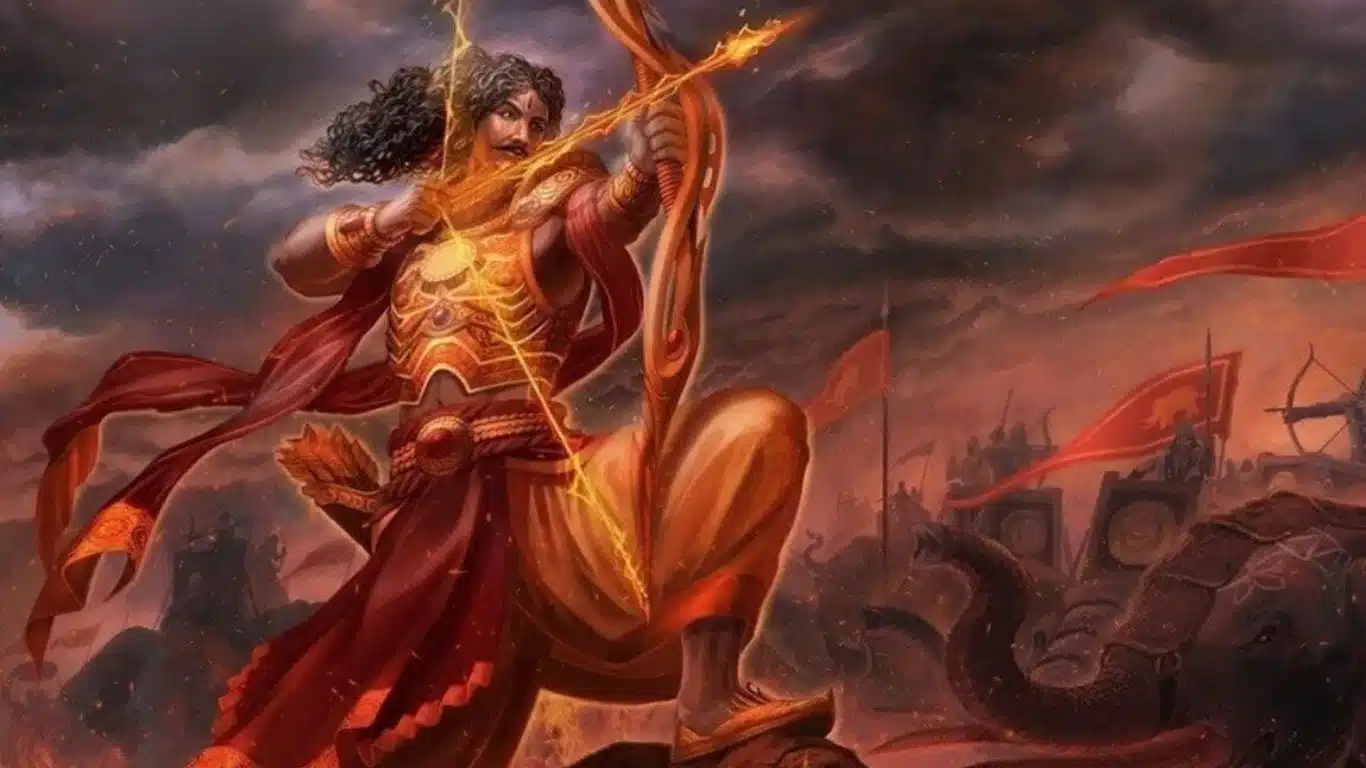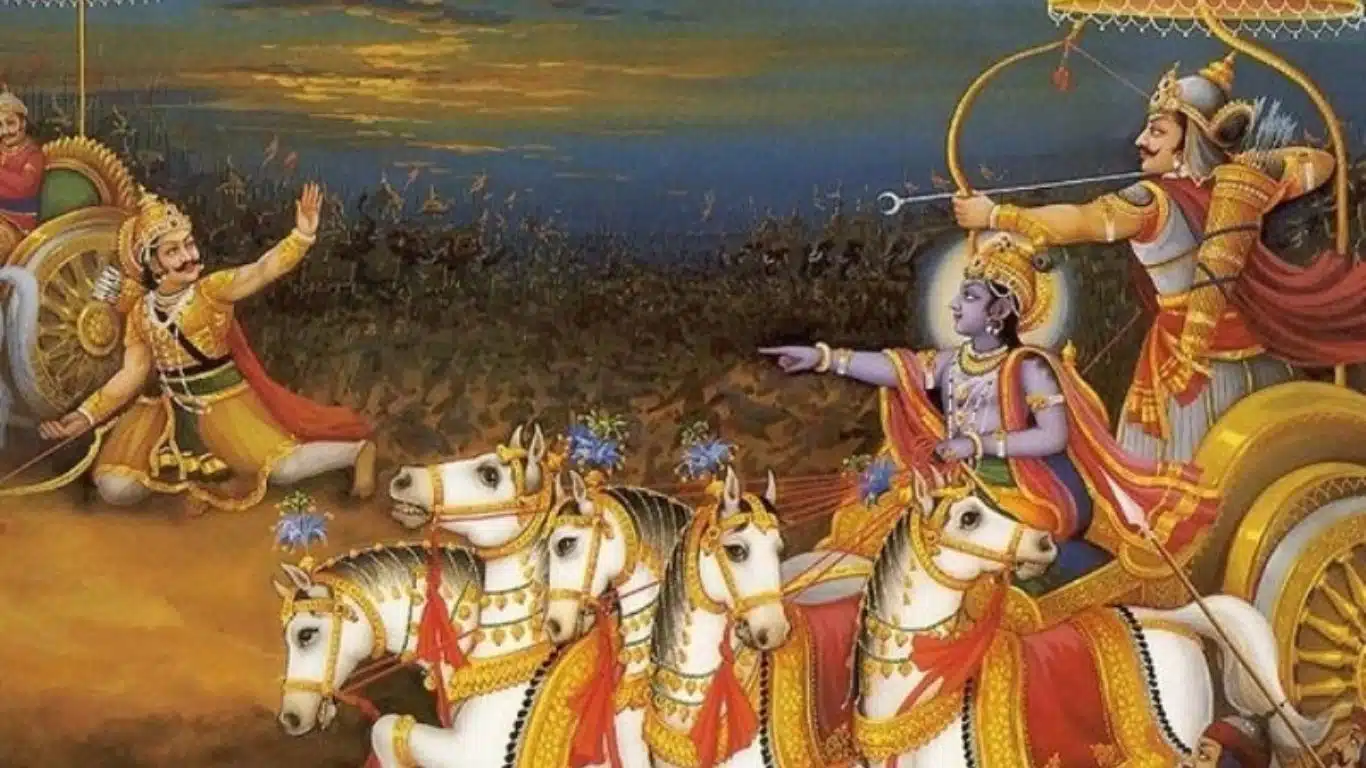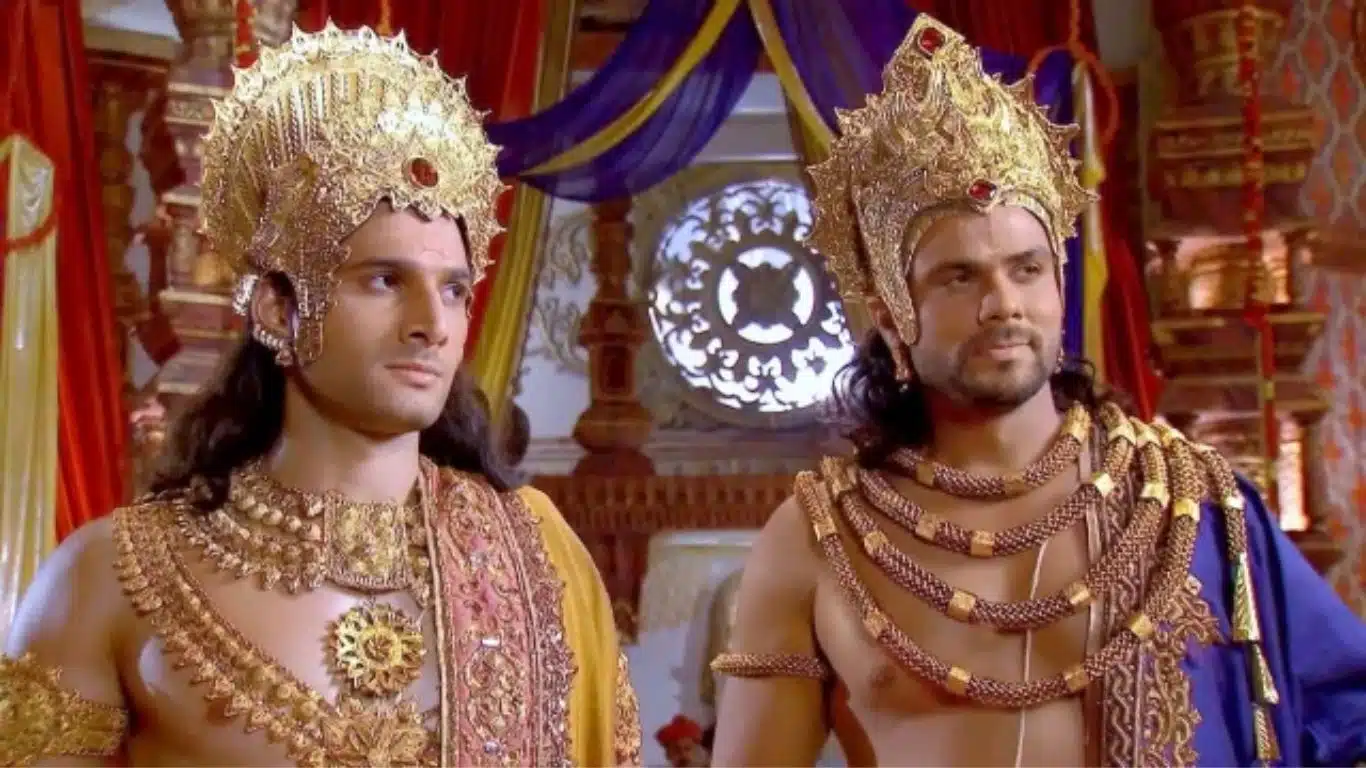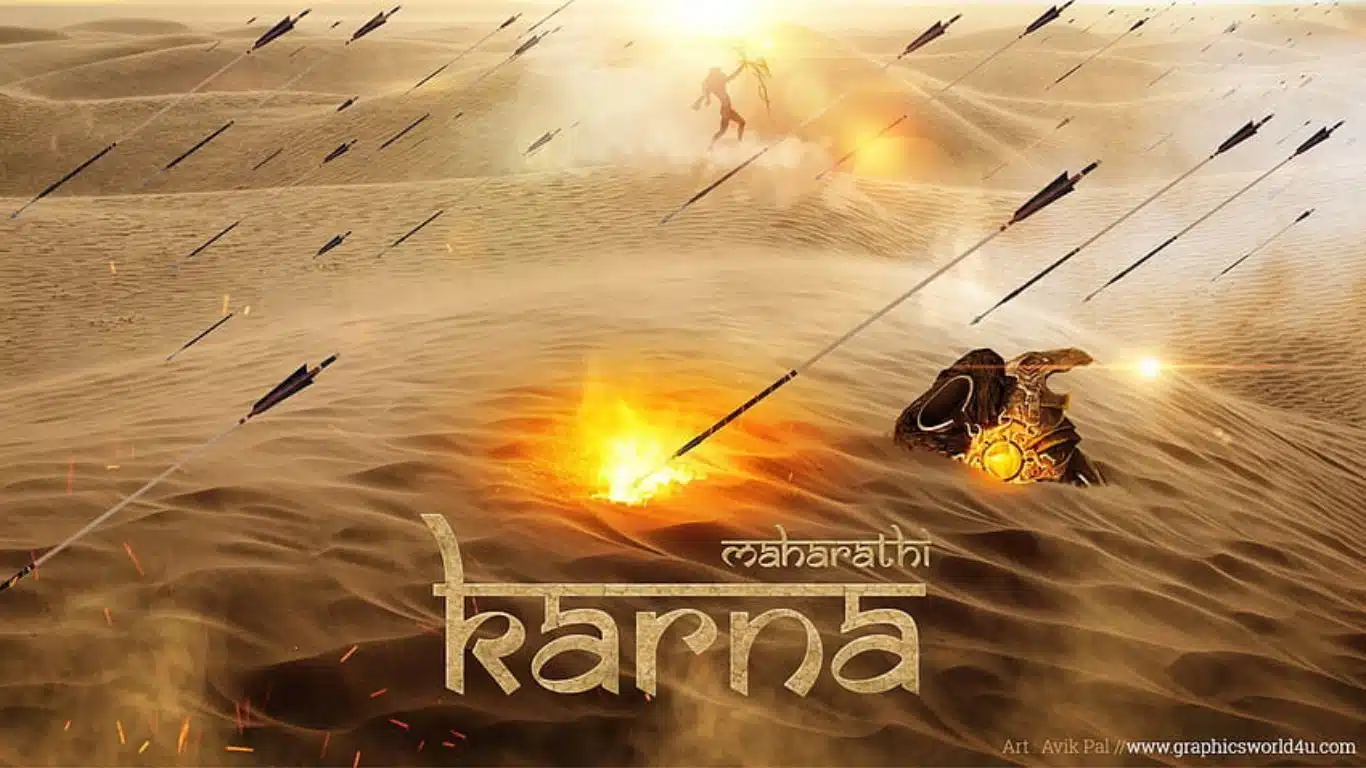The Mahabharata is one of the world’s most significant epic poems, and it tells the story of an ancient Indian war between the Pandavas and the Kauravas. One of the most intriguing characters in this epic is Karna, the son of the Sun God and Kunti, who was abandoned at birth and raised by a low-caste charioteer. Karna’s life is a tale of sacrifice and loyalty, and his character is a study in contrasts. In this article, we will explore the legend of Karna, delving into his life, his relationships, and the legacy he left behind.
The legend of Karna: A tale of Sacrifice and Loyalty
Early life

Karna, the son of the Sun God and Kunti, was born to Kunti before her marriage to King Pandu. To avoid societal stigma, Kunti abandoned Karna in a basket and set him afloat in a river. He was found and raised by a low-caste charioteer named Adhiratha and his wife Radha, who gave him the name Vasusena.
Karna showed a remarkable aptitude for learning from a young age, and he acquired his knowledge through the guidance of his foster father Adhiratha. He studied under various gurus, including Parashurama, who imparted him with divine weapons and taught him the art of warfare.
Karna’s kavach (armor) and kundal (earrings) were said to be his most precious possessions. The kavach was a gift from his father, the Sun God, and it rendered him invincible in battle. The kundal was given to him by his mother, Kunti, who revealed his true identity to him after many years of secrecy. The kundal was said to protect him from harm, and he could only be defeated if they were removed from his ears.
Sacrifices

Karna is perhaps best known for his sacrifices, which are emblematic of his selflessness and loyalty. His sacrifices began in his youth, when he gave away his armor and earrings to Indra. Who disguised himself as a Brahmin and asked for them as a gift. Karna, who was known for his generosity, willingly gave them away, even though he knew it would leave him vulnerable in battle.
Later in life, Karna made another significant sacrifice. During the war between the Pandavas and the Kauravas, Lord Krishna approached Karna and revealed to him his true identity as the son of Kunti and the half-brother of the Pandavas. Krishna urged Karna to switch sides and fight for his rightful place in the family. However, Karna refused, stating that his loyalty to Duryodhana was unbreakable, and that he had given his word to fight on the side of the Kauravas.
Karna’s final sacrifice came on the battlefield, where he faced off against his half-brother, Arjuna, in a fierce battle. Karna had the upper hand, but his chariot wheel became stuck in the mud, and he was unable to move. As he tried to dislodge the wheel, Arjuna aimed an arrow at him. Seeing this, Karna requested a moment to repair his chariot, but Arjuna refused, citing the rules of war. Karna then invoked the weapon he had received from Parashurama, but he hesitated to use it as he knew it would kill Arjuna. In that moment of hesitation, Arjuna shot his arrow, which struck Karna and killed him.

Karna’s sacrifices, both large and small, demonstrate his unwavering loyalty and selflessness. His willingness to give away his most precious possessions and to remain loyal to his friend and ally. Even in the face of impossible odds are testaments to his character and his place as one of the most beloved characters in Indian mythology.
Loyalty
Karna’s loyalty is one of his defining characteristics, and it is demonstrated in various ways throughout his life. From an early age, Karna was fiercely loyal to his foster brother and friend, Duryodhana. Who accepted him as an equal despite his low birth status. Karna remained loyal to Duryodhana even when it meant going against his own brothers and risking his own life in battle.
Karna’s loyalty is perhaps best exemplified by his refusal to abandon Duryodhana. Even when Lord Krishna revealed his true identity as the son of Kunti and half-brother of the Pandavas. Krishna urged Karna to switch sides and fight for his rightful place in the family. But Karna refused, stating that his loyalty to Duryodhana was unbreakable. And that he had given his word to fight on the side of the Kauravas.

Karna’s loyalty is also evident in his relationship with his mother, Kunti, who abandoned him at birth. When Kunti revealed their relationship to him on the eve of the battle. Karna was torn between his loyalty to Duryodhana and his duty to fight alongside his brothers, the Pandavas. In the end, Karna chose to honor his loyalty to Duryodhana and fight against his half-brothers. Even though he knew it would lead to his own demise.
Karna’s unwavering loyalty and selflessness are admired by many, and they continue to inspire people to this day. His sacrifices and his commitment to his values make him one of the most beloved and respected characters in Indian mythology. And his story serves as a reminder of the power of loyalty and devotion.
Also Read: The Meaning and Significance of Hindu Deities









